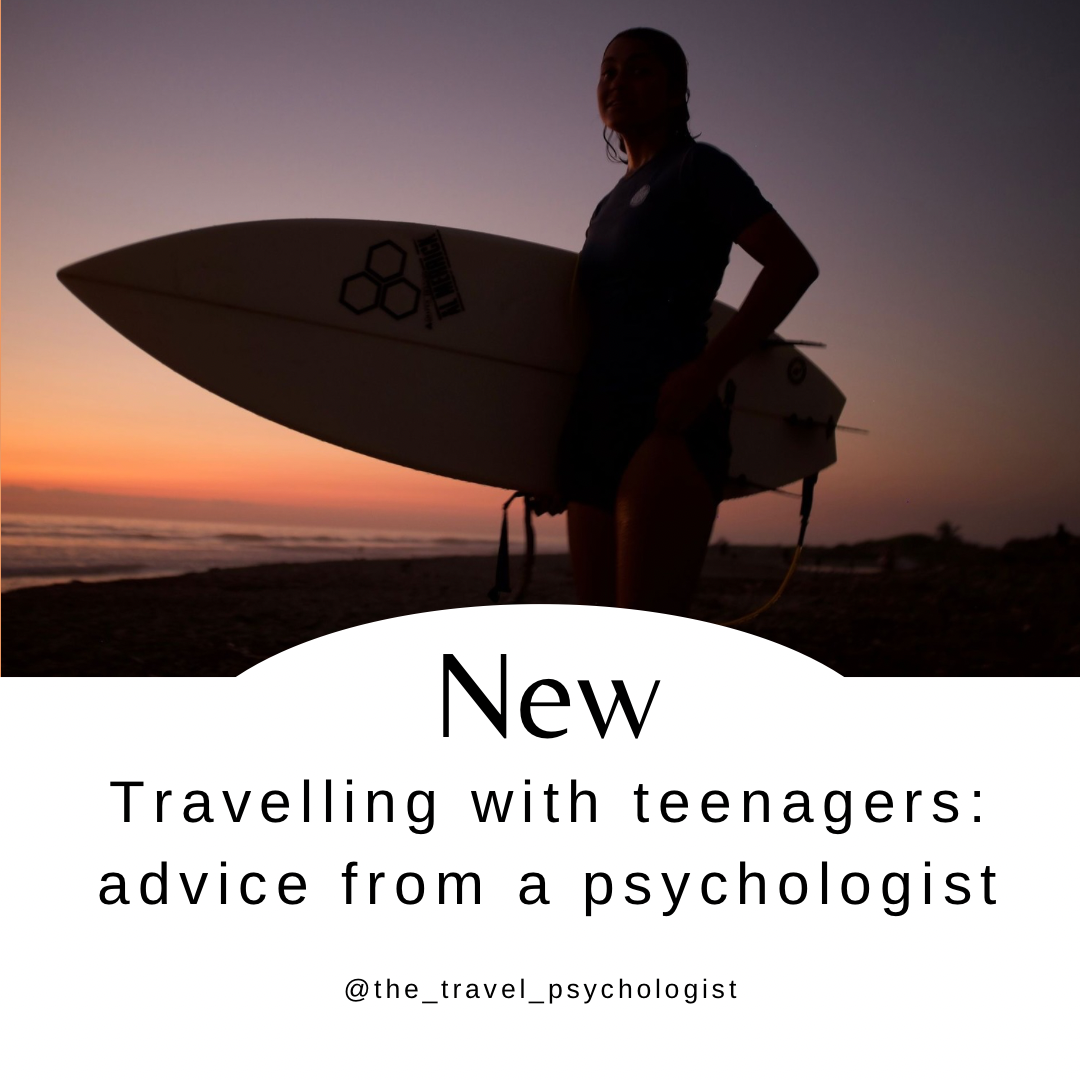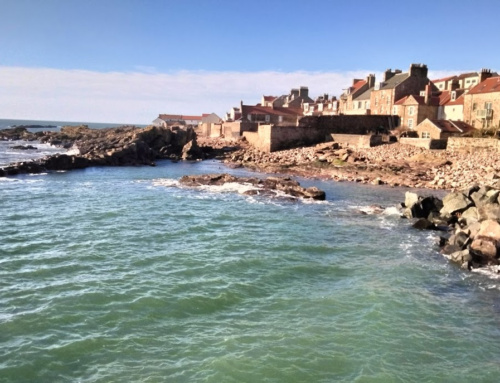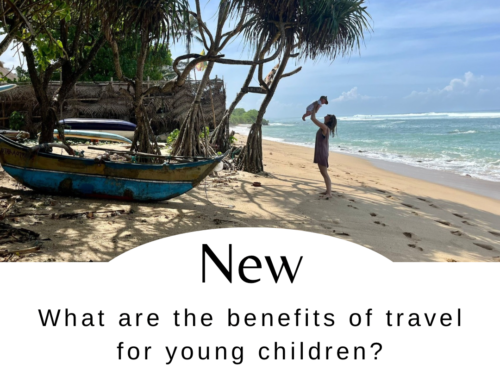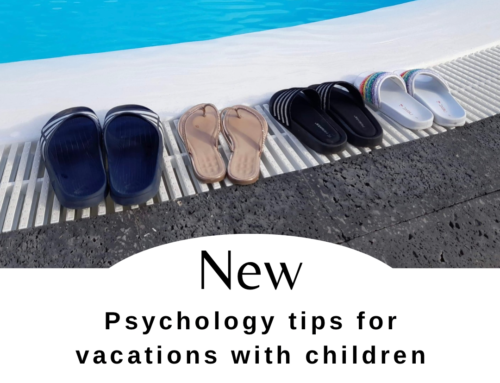Dr Samantha Fish, Clinical Psychologist & Guest Contributor
The teenage years are notoriously challenging but in my opinion this age group often unfairly get a bad rep. Yes, that surge of hormones and growth can be tricky for a while as we start the humongous change from childhood to adulthood, but this is also a period of growth, exploration and humour as we get to find out who we are. Travelling puts us outside of our comfort zone, it pushes us into new experiences and to see other cultures and ways of being, so it can be the ultimate learning experience. Getting to see the world through the eyes of a child or teenager, is incredibly rewarding. You may have seen several sunsets or temples in your time, but witnessing another seeing these for the first time is to experience things anew.
Travel and development
What we know as Psychologists is that the teenage brain is evolving quicker than at any stage of their development outside of the first few years of life. The teenage brain is slightly more ‘plastic’ as it prunes away any unwanted and unused knowledge (goodbye recorder lessons, Henry V’s wives and random hobbies of our childhood) and creates new connections. Neuroscientists refer to this amazing way of adopting in response to experience as ‘neuroplasticity’ (Larsen and Luna, 2018, Juraska, 2024). The more that adolescents explore, experiment, and learn, the more those new experiences actually change the structure of their brain. So, travel and all the opportunities that this affords, new scenery, cultures, adventures and socialising can be transformative in a young person’s life.
One thing that marries well for younger people and travelling is that thirst for adventure and a greater propensity for taking risks. As parents we want to give adolescents room to explore, to grow and to discover new things about themselves and the world, but in a safe way (without them feeling controlled or patronised!). Engaging in typically risky, novel things is a healthy developmental stage for young people. These experiences stimulate the brain’s ability to learn new skills by giving it opportunities to adapt in new environments therefore readying us for adult independence. A holiday full of adrenaline filled opportunities such as zip lining, snorkelling, white-water rafting or hairy tuk-tuk rides through bustling back streets can provide a perfect environment for young people to experience healthy risks, in hopefully a safe and supportive way.
Parents as anchors in teenage development
While being with their friends suddenly becomes the most important thing in an adolescent’s life, parental support remains essential for supporting healthy development. Being in new environments together, can take you out of the everyday parent-child relationship that can feel like an endless cycle of nagging, to a place where you can talk and learn about the person developing in front of you. Research tells us that parents play an important role in helping young people self-regulate, manage tricky relationships and promote healthy, adaptive decision making during something scary or risky (Abramson et al., 2024). It makes sense that travelling together, with the scaffolding and support of a parent, could provide the perfect environment for that young person to learn and thrive. Whether it’s approaching new people to test out some recently learnt language, hanging out with someone they met by the pool or finding the courage to try a new activity, the opportunities for learning and growth while travelling are plentiful.
Who am I?
When thinking about travelling with teenagers and the benefits it can bring, it made me reflect on one of the key developmental roles happening for young people – the formation of their own self-identity, who are they in the world. This is especially pertinent today where who they are can be influenced hundreds of times each day by videos and people on TikTok and Instagram. There is less opportunity for the organic process of discovering themselves, as each moment is filled with other young people telling them who to be, what to wear or how to act. Psychoanalyst, Erikson (1959) believed that as individuals we continue to grow and develop throughout our lifetime, but a key role that adolescence brings us is the opportunity to learn who we are, he called this stage “identity vs role confusion”. In this stage, we want to belong in society and fit in. We try on different hats, experimenting with different roles, activities, behaviours and potentially dodgy fashion choices, all of which is important in forming a strong identity (who am I?) and developing a sense of direction in life.
So how does this fit into travelling and other cultures? For me travelling is the ultimate chance to discover who we are. Without immediate peer pressures to act in a certain way or mould our responses, we are freer to listen to our bodies about how we are feeling. There are more moments to notice, notice the world around us, how we’re navigating it and how people and the environment are responding to us – crucial for learning about ourselves at any age. When we’re away, we’re often presented with feelings of boredom, waiting for trains or flights, giving us time to just be. And yes, 99.9% of this time is likely to filled with a phone or tablet, but there are still times that aeroplane mode might be on, and we’re alone with our thoughts or chatting to others. Some screen free time might be one of the nicest parts of being away and is important for us to remember as parents too.
Challenges
No matter who your travelling companion, there are always going to be bumps, and travelling with teenage children is no exception.
A big part of this are expectations – I think it’s important to consider both yours, and your child’s expectations when going into a trip. Experiences that would have once upon a time elicited gasps of “wow” and wonderment, may be met with a nonchalant shrug. And that is ok. I think of the time my husband chose to read Harry Potter (I’m sure he’d argue it was something much cooler!) rather than looking out of the window on a once in a lifetime trip flying over the Grand Canyon, and the absolute understandable annoyance of my in-laws who still tell this story to this day. This doesn’t mean these experiences aren’t important. In time, these stories become part of the tapestry of your family, shared memories and moments that you will always look back on and relive. It isn’t necessarily about seeing the thing that people think is wonderous, it’s the quality time together.
Balance can be tricky to achieve when you have more people with firm opinions, wants and desires from a holiday. Finding something for you all to do can feel difficult and it can be beneficial to get teenagers involved in the planning of a trip, from thinking about places they’d like to visit, accommodation, places to eat and things to do while you’re there. Thinking realistically about the logistics of your budget is a helpful thing to consider not only in the gratitude and appreciation of the trip, but in learning problem-solving and planning skills. This can also go someway to mitigating resentment that might crop up. It can be easy to feel resentful of the money or time you’ve spent planning a trip, to be met with eye rolls or protests. It’s easier said than done, but trying to see the big picture is important. Maybe the best part of the trip won’t be seeing the Eiffel tower or the Northern lights for example, but all learning a new card game together on the balcony or listening to music on the beach together. What is amazing to us as adults isn’t necessarily the same for young people.
Tips for travelling with teenagers
Time alone
Travelling can be intense! You will be together 24/7 for a number of days/weeks and may even be sharing a hotel room, something that will be different for all of you. We all need some time by ourselves, but no-one more than an overstimulated teen without their friends. The benefits of travelling with teenagers rather than young children is that you can build in some time alone, whether this is a sightseeing trip while your teens stay back, or separate time by the pool/beach, it is healthy to give everyone some space on a vacation.
Food
Food is important for everyone, but nobody more so than a growing teenager. Having snacks on hand like the toddler days or planning in regular stops is probably not a bad idea to ward off sudden drops in blood sugar brought on by the heat. I also think it’s important to reduce pressure around eating local foods. Yes, the thought of eating a cheeseburger or pizza when a delicious local delicacy is on offer might make your inner foody cringe but try to let that go and give your teenager the independence to make their own food choices. Sometimes a local cooking course can be a nice thing to do together to promote curiosity around new foods.
Sleep
Teenagers do need more sleep than we do as adults, and recent guidance suggests between 8-10 hours. Every person is different, and if your young person loves an early rise, then take advantage of this with morning trips or excursions. But if you know that dragging your teenagers out of bed at sunrise to do a trek is going to be torturous for both of you, why not give them time to lay in and make the most of the afternoon and evenings. Staying out later is an advantage of travelling with older children, so go and visit that night market or go for a nice evening meal or night-time dip in the sea (when safe to do so!).
Screen free time
Now I’m definitely not suggesting an ban on phones or tablets, but some time built into your days without them could be hugely beneficial for everyone. This includes parents too! On days with lots of travel then screens can be an enjoyable and welcome distraction but having some time together as a family at dinner for example can be an opportunity to connect and have fun.
Responsibility and autonomy, but with support
Encourage young people to think about what they might need on the holiday and what they want to take. Give them space to forward plan and do their own packing. It just might need a bit of oversight near the end! It also isn’t the end of the world if they forget something, this act in itself can help with better planning in the future and in reality there are very few places in the world where you can’t buy a toothbrush or charging cable if needed.
Conclusion
When children become teenagers, the reality looms that there may not be too many years left when they want to come away with you. Being away from the day-to-day stressors of school, exams and work can help you to re-connect and discover who you both are. Creating new memories in this more adult like role can help forge new ways of relating to each other as you both move into a new season of your life.
References
Abramson, L., Callaghan, B. L., Silvers, J. A., Choy, T., VanTieghem, M., Vannucci, A., … & Tottenham, N. (2024). The effects of parental presence on amygdala and mPFC activation during fear conditioning: An exploratory study. Developmental Science, e13505.
Erikson, E. (1959). Theory of identity development. E. Erikson, Identity and the life cycle. Nueva York: International Universities Press. Obtenido de http://childdevpsychology. yolasite. com/resources/theory% 20of% 20ident ity% 20erikson. pdf.
Juraska, J. M. (2024). The last stage of development: The restructuring and plasticity of the cortex during adolescence especially at puberty. Developmental psychobiology, 66(2), e22468.
Larsen, B., & Luna, B. (2018). Adolescence as a neurobiological critical period for the development of higher-order cognition. Neuroscience & Biobehavioral Reviews, 94, 179-195.
If you liked this article check out Psychology tips for vacations with children





